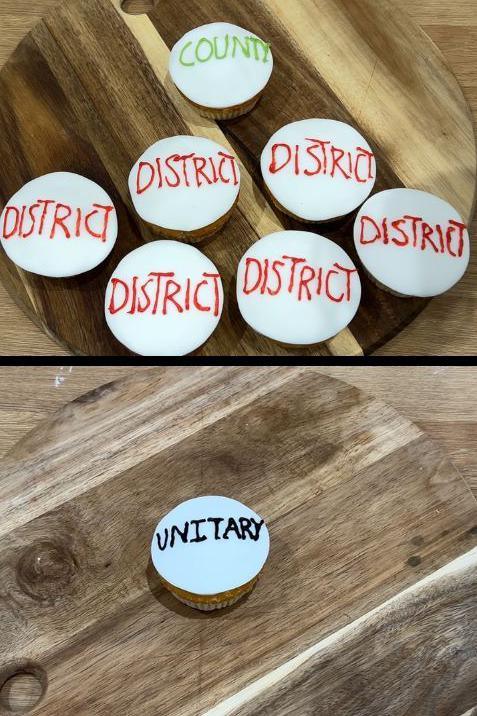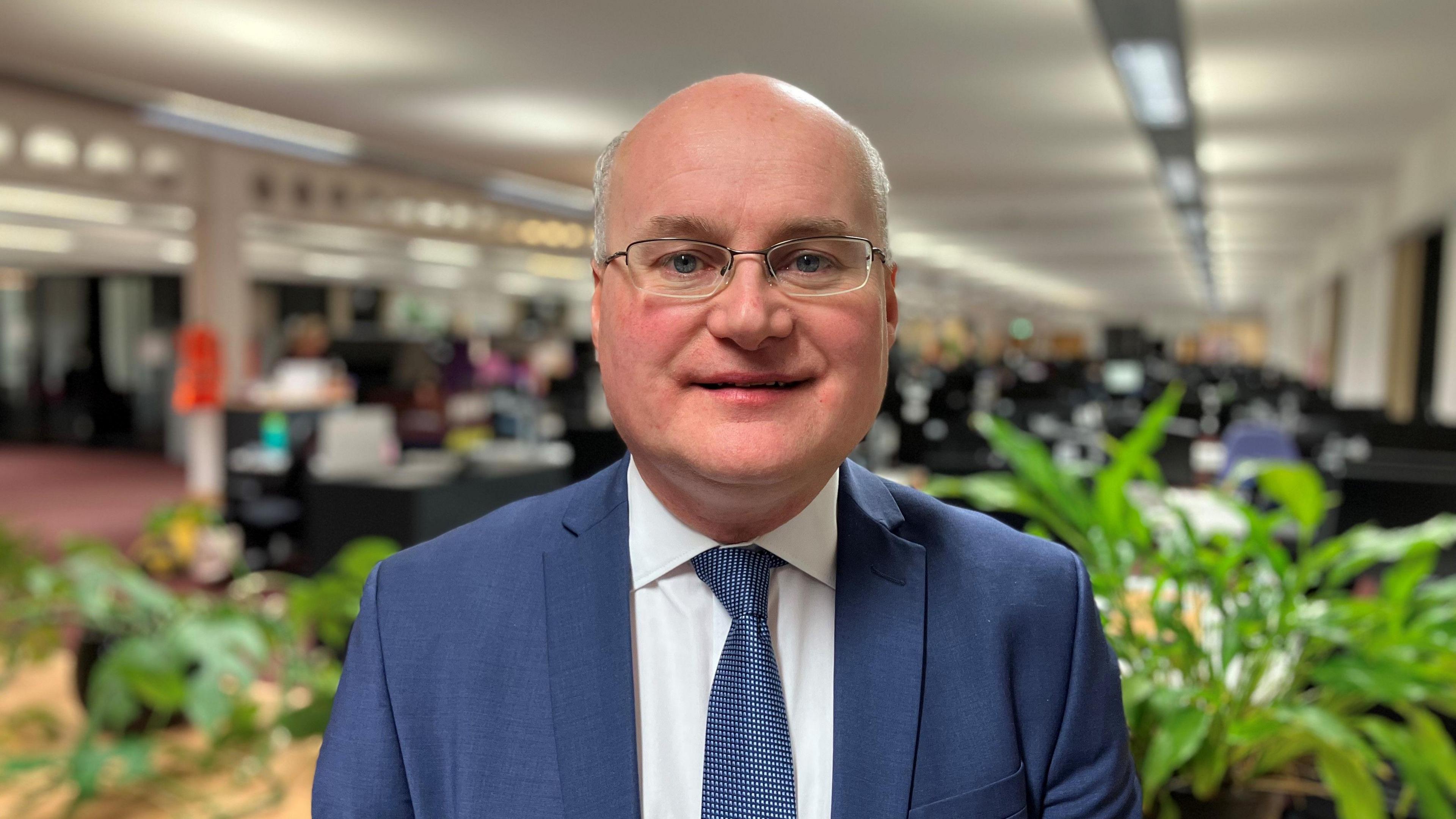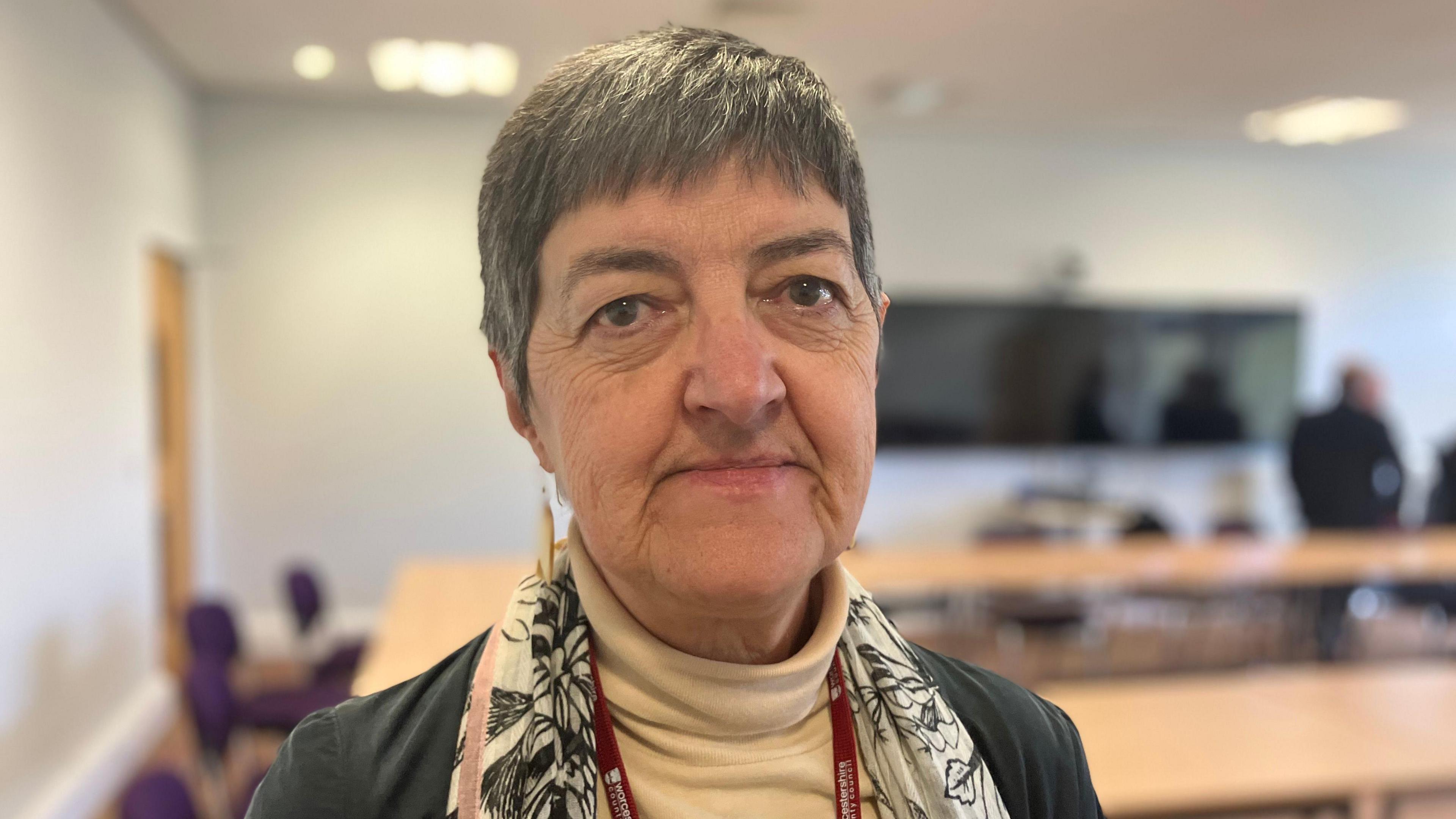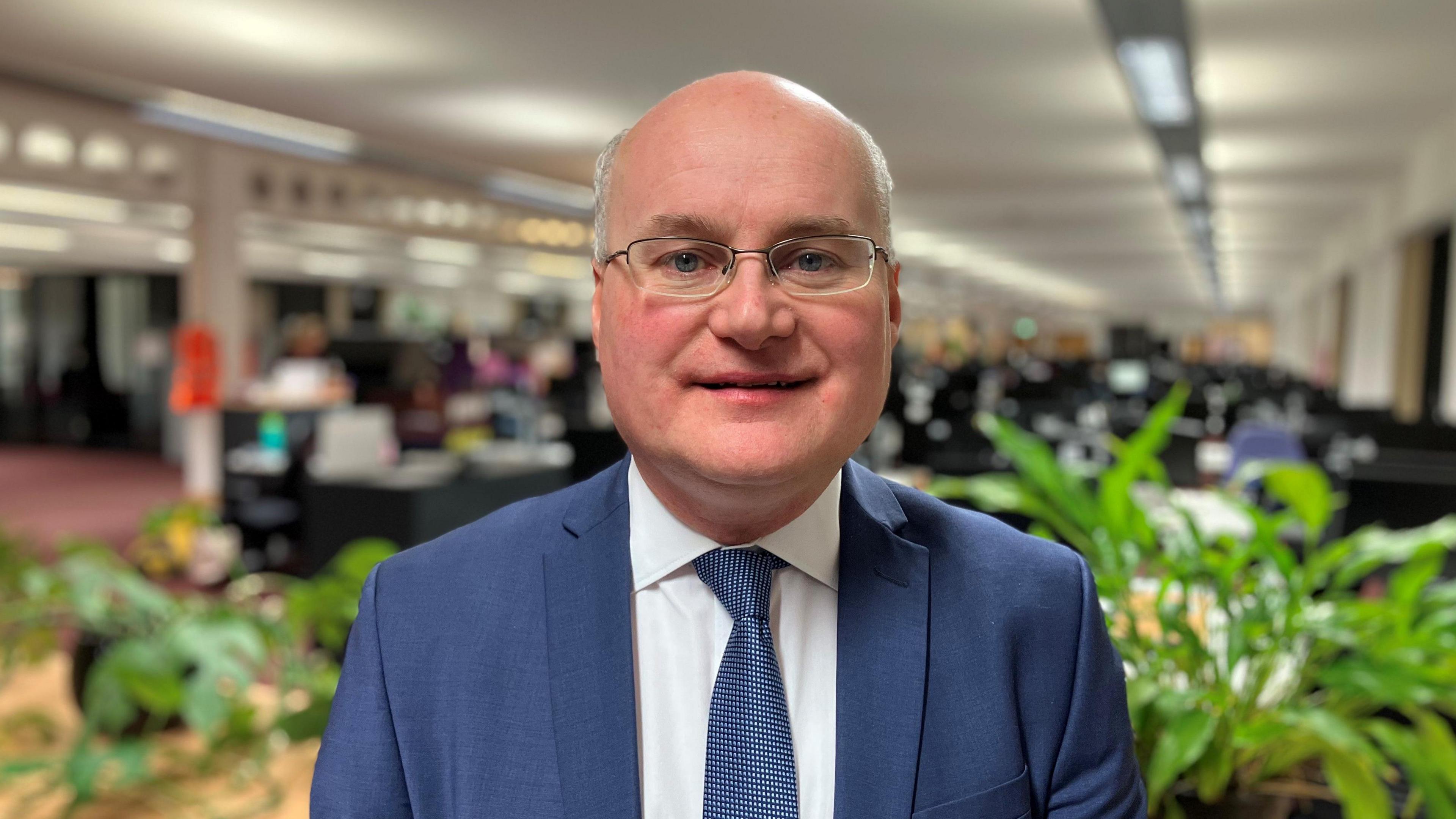Political bunfight beckons over future of councils

Decision-making over services including parks, roads, social care and housing could all shift in Worcestershire, under Labour's devolution plan
- Published
Labour's white paper on devolution, external promised to put communities back in control of services. But so far in Worcestershire it has cooked up a political bunfight over what comes next.
Political leaders appear deadlocked over what should replace the county's two-tier council system.
While Worcestershire County Council wants to replace it with a single, unitary authority, only one of the county's six districts (Wyre Forest) has openly expressed its support.
Instead, alternative ideas could see the county's political structure sliced in two: with north and south pursuing separate plans for new councils.
Sometimes in politics, things are best settled over a piece of cake.
So why not use cupcakes to help explain a complicated council reorganisation?
At present, Worcestershire has one county council, with responsibility for services including roads and social care, sitting above six district councils running rubbish collections, planning and housing.
However, the new Labour government has argued merging two-tier areas into 'unitary' councils will streamline services.
In December it invited council leaders to submit initial proposals by March.

At present Worcestershire has a two-tier council system of a county council and six districts, but that could be replaced by a single, unitary council
On Wednesday the county council asked the government to fast-track its devolution deal, by postponing this year's elections until 2026.
Conservative leader Simon Geraghty said the delay would give leaders time to submit proposals "at pace" by May.
However, the request was made without the backing of district councils and has since faced a backlash.
Green county councillor Matt Jenkins said there was no reason to delay elections as there was no credible plan.
"Five out of six district council leaders do not support merging with Worcestershire," he said.
Geraghty said deputy prime minister Angela Rayner put it well when she said it would be "ludicrous" for councils to hold elections, if they were planning to reorganise.
The bigger, the better?
"My belief is that we need to get on with this," he said in response.
"The government wants unitaries of 500,000 and above. We have 600,000… so I think we have a clear case to make to government."

Worcestershire County Council leader Simon Geraghty said postponing elections would allow politicians to focus on devolution talks
However, the leaders of three of Worcestershire's six districts - Malvern Hills, Redditch and Worcester - have already raised the possibility of the historic county being sliced into two smaller unitary councils: north and south.
Wyre Forest, Bromsgrove, Redditch in the north, Malvern Hills, Worcester, Wychavon in the south.
"I think we need to look at other geography, to help ensure decision-making is closer to people" said Worcester's Labour leader Lynn Denham.
She highlighted the strategic planning work Worcester already shared with neighbouring Malvern Hills and Wychavon.
"I think if we get swallowed up in a Worcestershire-wide unitary authority, it will not benefit our councils up in the north," said Joe Baker, Labour leader of Redditch Borough Council.
Looking beyond county boundaries
Labour's white paper also requires councils to join together to form strategic authorities: groups covering a minimum population of at least 1.5 million, potentially with a directly-elected mayor.
But again, no consensus has formed yet over which neighbouring area Worcestershire should look to work with.
At present, voters in Herefordshire, Shropshire, Telford and Wrekin and Worcestershire elect a police and crime commissioner to oversee West Mercia Police.
Another option would be for Worcestershire to combine with Herefordshire and Gloucestershire, to form a 'Three Counties' combined authority. That idea has been raised by Gloucestershire's council leader Stephen Davies.
"I've also had that conversation… the three cathedral cities!" said Denham.
"Certainly for the south of the county, we look down to Cheltenham and Tewkesbury… there's interactions there… she said.

Lynn Denham, leader of Worcester City Council, argued county council elections should go ahead in May
A third option raised in recent weeks is for a partnership with Gloucestershire and Warwickshire, based on the county's major transport links.
"I think we are in unique location… with the M5 and the M42," said Conservative councillor David Chambers, the county council's cabinet member for education.
"We are strategically placed - from an economic development point of view - in the heart of England. I can see it being a really positive move for this part of the country," he said.
Geraghty said he had spoken to his counterparts in Gloucestershire and Warwickshire about their devolution plans but stressed Worcestershire should keep its options open at this stage.
A final decision on postponing the county council elections will be made by the government in the coming weeks.
If approved, council leaders would have until May to submit proposals on council reorganisation.
Follow BBC Hereford & Worcester on BBC Sounds, Facebook, external, X, external, and Instagram, external.
- Published9 January

- Published9 January

- Published23 December 2024

- Published16 December 2024
